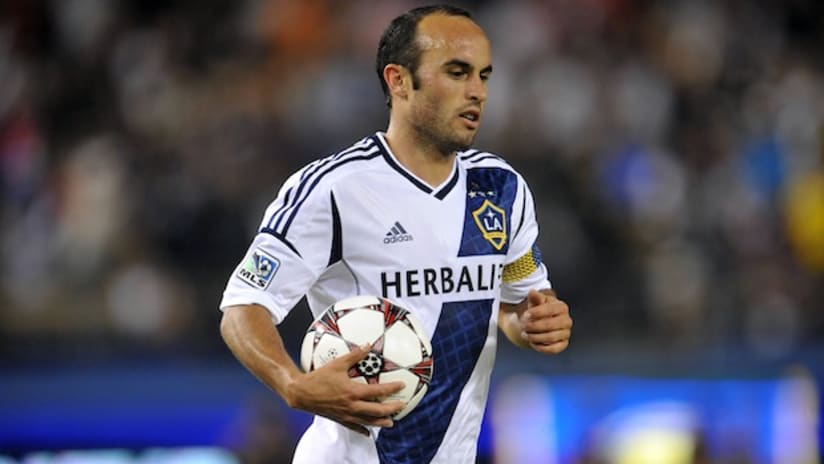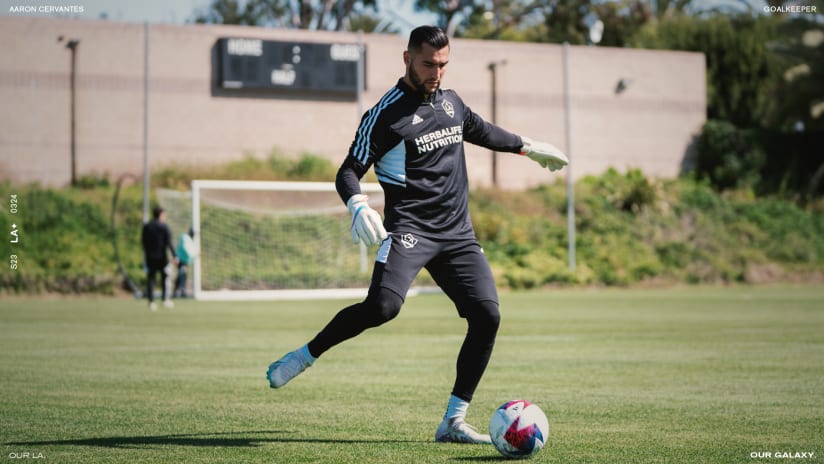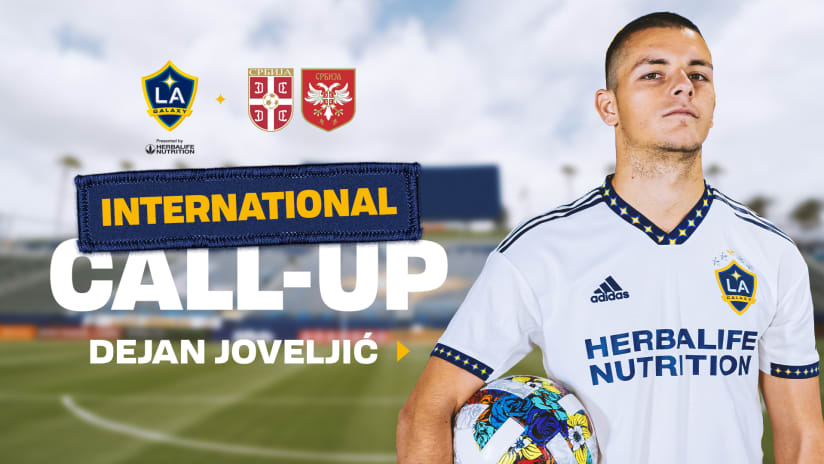At the time, it felt like a big deal. Just how big, however, no one knew for sure.
"You look back on it now, a dozen years later," says agent Richard Motzkin, "and yeah, it turned into everything you hoped it would be and more. But back then? We just hoped."
"It" would be Landon Donovan's initial loan from Bayer Leverkusen to Major League Soccer and the San Jose Earthquakes in 2001. And, yes, Motzkin is correct, only he has undersold its importance in league history.
"It" is the league's seminal moment.
Don't believe it? I'm not sure where the counter-argument even begins. Certainly not with anything numerical.
This weekend, Donovan will try to notch regular-season goal No. 135. If he doesn't get it in Sunday night in Seattle, he will get it next season. And at some point, before his career is over, Donovan will record 19 more assists to pass Steve Ralston's all-time record of 135. The numbers say that moment should come sometime in 2015.
Donovan's won five MLS Cups, has scored more playoff goals (22) than anyone in league history and has more goals in MLS Cup finals (five) than any other player.
And he's nowhere near any of those milestones without "it."
Landon Donovan played his first game in MLS on April 7, 2001, coming on for the final 17 minutes of the match in a 3-2 win for the San Jose Earthquakes over the LA Galaxy. More than 300 regular-season games later, he's on the brink of setting the MLS scoring record.
(Getty Images)
"It was somewhat serendipitous," Motzkin admits. "Because, if you'd asked Landon at the time of the loan, where he wanted to go, he would have said, 'Home to Los Angeles.' But as it turned out, going to San Jose was the right kind of transition for him.
“It was a little smaller market, which gave him the chance to grow and evolve as a player and person. He also played for a coach in Frank Yallop who showed him a lot of confidence, and who told him he didn't have to score a goal a game right away to keep his spot."
The story is well known in American soccer history at this point. Donovan was signed at the age of 16 by Bayer Leverkusen to a six-year contract worth more than $1 million. That may not seem like a ton of money in today's world, but in 1999, to see an American kid who'd barely reached puberty get a legitimate deal with a great club was huge.
I recall interviewing Donovan down in Fort Lauderdale at a U.S. Soccer event and came away laughing to myself because it was probably the first time in my career as a sports reporter I'd tried to pull answers out of a kid. He didn't have a whole lot to say.
His US Under-17 coach John Ellinger, however, did. Ellinger told me about a friendly game where Donovan went head-to-head against England's brightest young player, Joe Cole, and looked as good, if not better, in every aspect of the game. Heady stuff.
But Donovan's days in Germany were not happy. It's well chronicled now, of course, how much he didn't like the weather, the food, or the loneliness that came with the job.
People said he was performing well with Leverkusen's second team in Germany's regional league. We'd hear rumblings that he was getting close to a first-team appearance, but nothing happened.
"He was 19 years old," recalls Bruce Arena, who was newly installed as the coach of the US national team back then. "So, why did anyone think he'd be playing for Leverkusen when he was so young? We knew he had a lot of potential, but we knew if we wanted to think about him as a possible player for the 2002 World Cup team, he needed to play."
Arena – and US soccer fans, for that matter -- had seen the potential on display at the U-17 World Cup in 1999, when Donovan won the Golden Ball as the tournament's best player, and helped lead the US team to the semifinals. The talent was there again at the 2000 Olympics, where he again helped the US reach the semifinals.
"I'd coached a D.C. United team that played against the US youth team that included Landon, DaMarcus Beasley and Oguchi Onyewu down in Florida," Arena remembers. "Landon was good, but he was an absolute punk. I thought Marco Etcheverry was going to punch him out.
“But we could see at the time, the kid had a lot of talent. And, the impression he gave was that he was an outgoing, cocky, boisterous kid, which is actually the opposite of what he is. But he caught my eye then. You could see it."
Donovan and the Earthquakes won an MLS Cup in 2001 and again in 2003 (above), the first two titles of his career. He's won three since, all with the LA Galaxy, joining Jeff Agoos and Brian Mullan as the only players with five MLS titles.
(Getty Images)
What no one could see with Donovan, however, was the week-to-week improvement they were seeing in players like Beasley, who began racking up minutes for the Chicago Fire in 2000. The idea toiling in Germany's Regionalliga when he could be playing on ESPN weighed on Donovan, so much so that Motzkin traveled to Germany to start talking about an exit.
"He was growing frustrated," Motzkin says. "And then Bruce called him in to play for the national team, against Mexico, in front of family and friends, and he scored. Then, of course, he went back to Germany and was back to training with the first team and playing with the second team, and he was getting impatient.
“I flew over there in December of 2000, and we met with the whole staff. We talked and told them Landon had a shot to make the World Cup team, but only if he was playing regularly. We also talked about Landon's desire to play more frequently in front of friends and family because, at that point in his life, that was extremely important to him. So, we made it happen."
Loans were not something MLS was in favor of, but everyone in the league's high command seemed to know this one made sense. Donovan, who turned 19 in March 2001, joined a San Jose team that finished dead last in the Western Conference in 2000 and had never finished higher than fourth place in its first five seasons.
By the end of Donovan's first season in San Jose, the Quakes were MLS Cup champions, with the kid scoring a goal in final. In 2002, Donovan was a key member of the US national team that advanced to the quarterfinals in Japan and South Korea. And in 2003, he was leading the Quakes to another title.
You could say "it" worked out pretty well.
"I think one of the worst places back then for a young American would have been Germany," says Arena, who's hoping to help Donovan raise his record-breaking sixth MLS Cup in December. "They were going to put him in his place and put him through a systematic way of being developed and he wasn't going to get any breaks. That, and the combination of him wanting to come home let him to MLS, where he's shown he's a special talent."
And, as we all know now, a big deal indeed.





